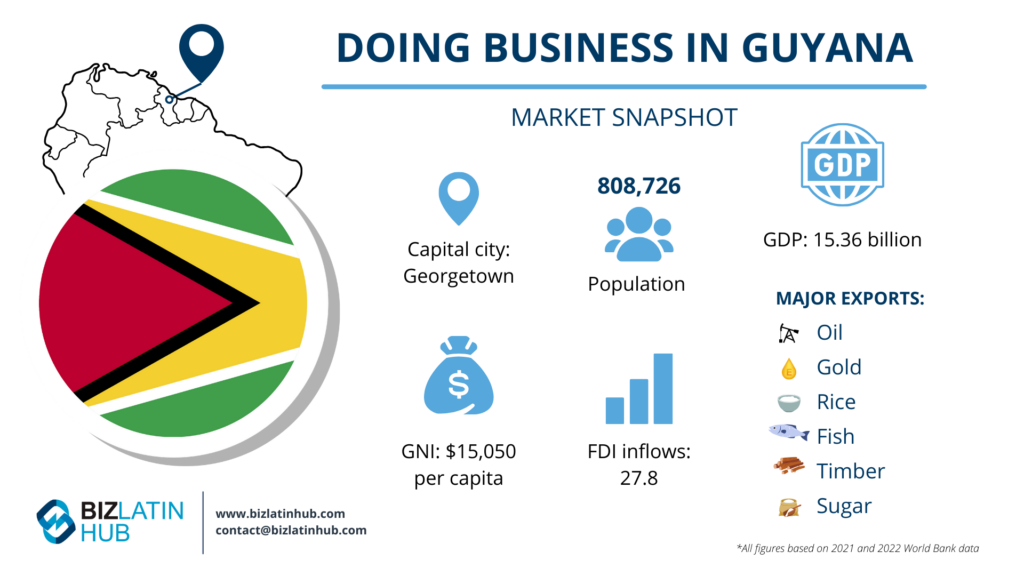The government of Guyana has relaunched a process to find a partner to market its share of the crude oil produced off its coast, after a similar tender process was discarded last year. The news comes at a time of increasing interest in oil in Guyana, following a series of major discoveries that position the country as an emerging global oil power.
Announcing the new tender process on July 8, Guyana’s Ministry of Natural Resources called for eligible bidders to submit proposals to “competitively market and maximize the value of the Government’s crude oil entitlement” in the Liza oil fields, where a consortium led by ExxonMobil oversees production.
The move comes less than six months after the Guyanese government announced it would be discarding a previous bidding process launched in August 2020, after 28 of the 29 bids received had to be discarded, with the current government blaming criteria established by the previous administration, which left office in August 2020.
SEE ALSO: Doing Business in Guyana

“It’s basically to level the playing field,” Natural Resources Minister Vickram Bharrat told Reuters, highlighting how well-established companies that have previously marketed government crude, including Hess Corp and Royal Dutch Shell, were disqualified by the prior criteria.
Under the terms of the contract signed with the ExxonMobil-led consortium in 2016, the Guyanese government is entitled to a portion of the crude produced in the Stabroek Block, however it has no state oil company or refining facilities and therefore relies on an external partner to market its share.
Table of Contents
Oil in Guyana attracts increasing attention
Oil in Guyana has drawn increasing global attention in recent months after a series of discoveries in the Stabroek Block, where the Liza field is located, with ExxonMobil announcing the latest discovery in June.
That effectively represented the 20th new discovery in the Stabroek Block in recent years, with a previous discovery made little more than a month before the June find.
ExxonMobil operates in the 6.6-million-acre Stabroek Block as part of a consortium that includes the likes of Hess Corp and China’s CNOOC, with an estimated 9 billion barrels of oil available even before the two most recent discoveries.
That has seen increasing attention turned to oil in Guyana, which is emerging as an important player on the global oil market at a time of shifting tides for the industry.
India, the third-largest importer of crude globally, has begun pursuing a policy of sourcing oil from outside the Organization of the Petroleum Exporting Countries (OPEC) over frustrations with the organization’s ongoing policies of reducing production.
That has seen India recently turn to Guyanese supplies, with a one million barrel “trial cargo” currently on its way to the subcontinent, which could mark the beginning of a highly lucrative relationship for the Caribbean country.
Biz Latin Hub can help you doing business in Guyana
At Biz Latin Hub, our multilingual team of corporate support specialists is ready to help you enter and do business in Guyana. Whether you are interested in doing business related to oil in Guyana, or any of the other lucrative opportunities available in the country, our expertise in the likes of company formation, commercial representation, legal and accounting support, or hiring and PEO services, means we can guarantee the provision of all of the back-office support you may need in order to help you achieve your business goals.
We have teams in place in 18 jurisdictions around Latin America and the Caribbean, and trusted partners in many others.
Contact us now to discuss your expansion options.
Or learn more about our team and expert authors.

The information provided here within should not be construed as formal guidance or advice. Please consult a professional for your specific situation. Information provided is for informative purposes only and may not capture all pertinent laws, standards, and best practices. The regulatory landscape is continually evolving; information mentioned may be outdated and/or could undergo changes. The interpretations presented are not official. Some sections are based on the interpretations or views of relevant authorities, but we cannot ensure that these perspectives will be supported in all professional settings.